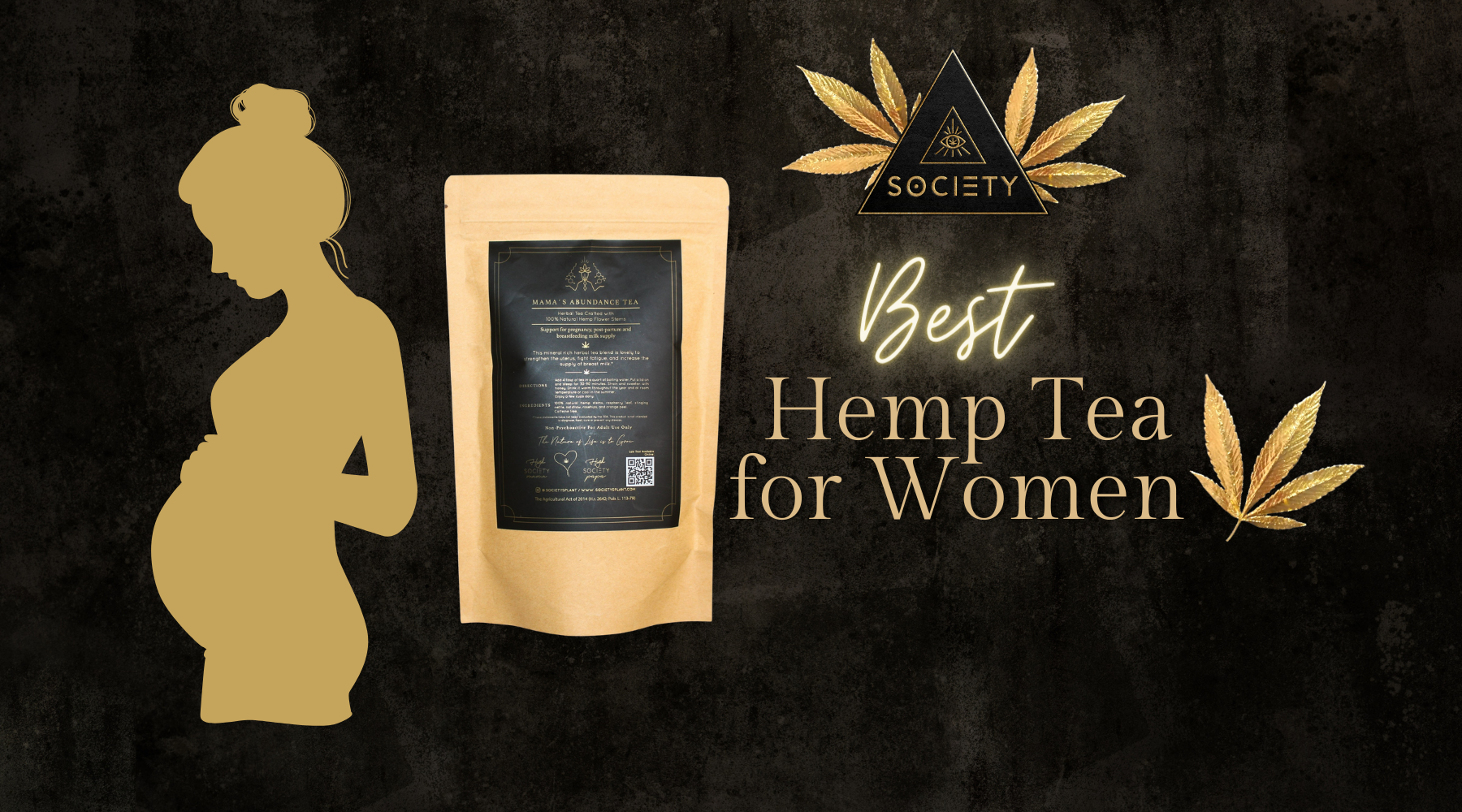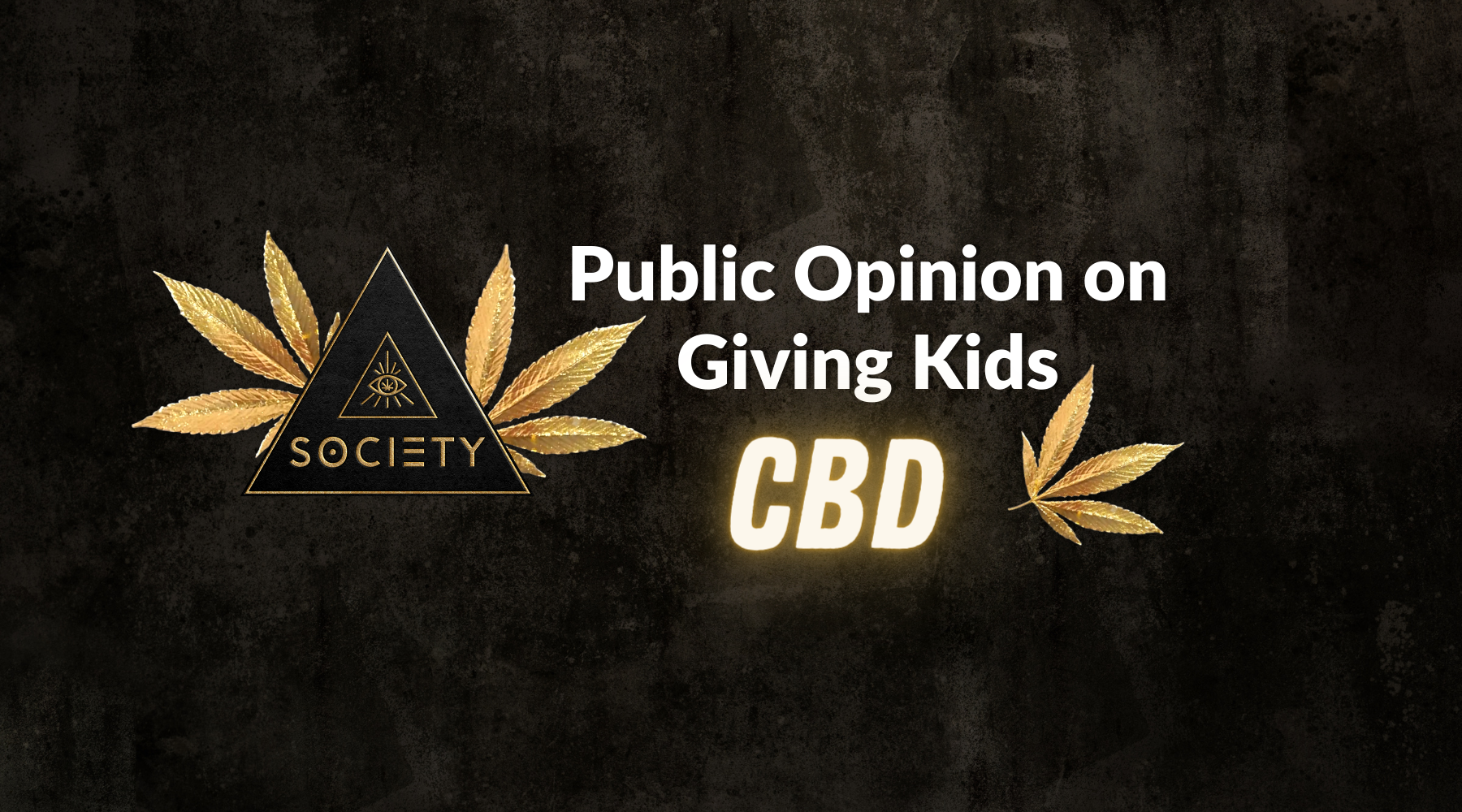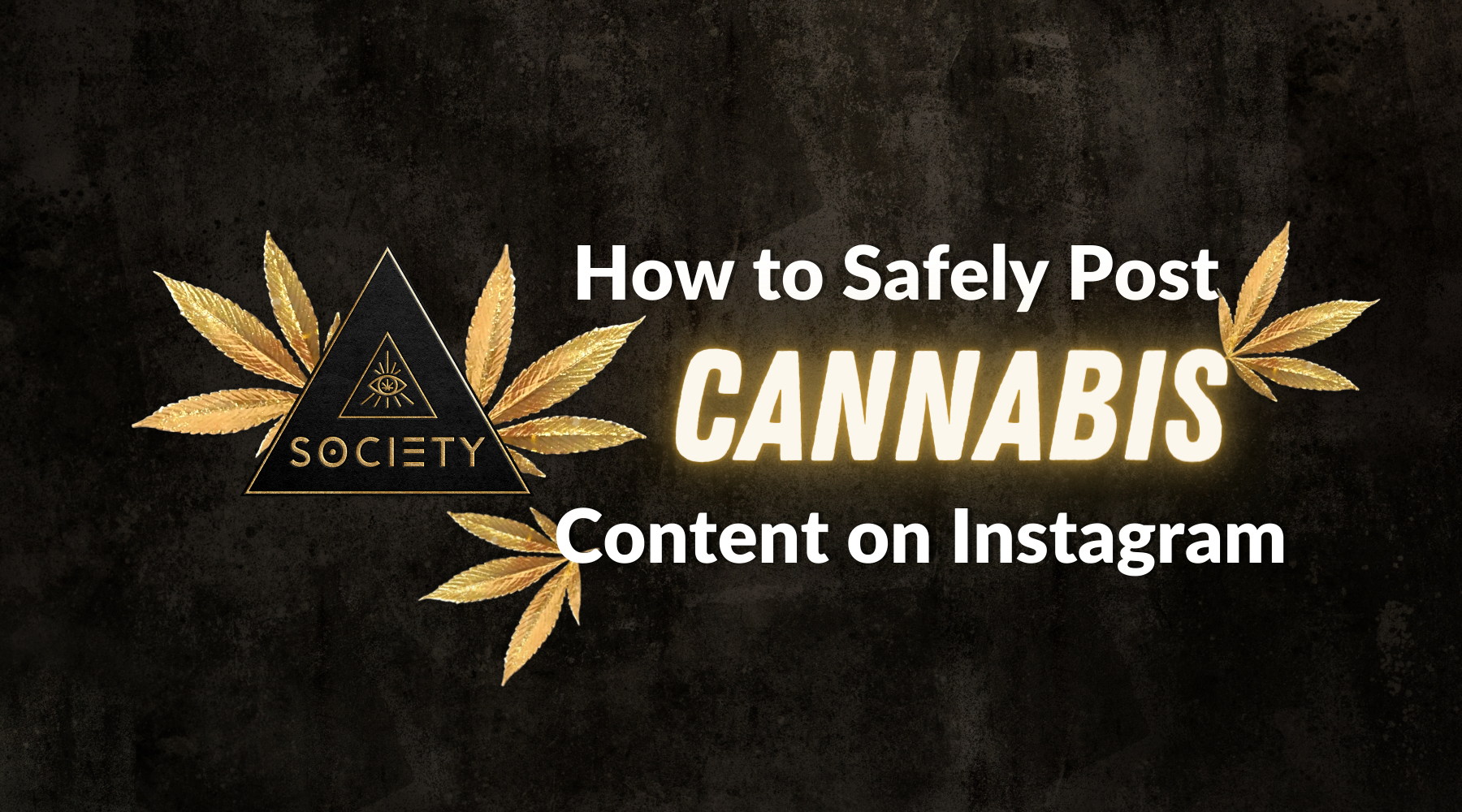
CBD Hemp Tea for Women
CBD Abundance for the Womb
The female body seeks to maintain a delicate balance and there are certain seasons in life when our hormones are particularly out of whack. During the 3rd & 4th trimesters, breastfeeding and the moon cycle, there are unique physical and emotional ups and downs. Mama’s Abundance Tea is wonderful to support the healing of your womb and as part of a holistic wellness practice.
SOCIETY’s Plant Mama’s Abundance Tea for Pregnancy, Breastfeeding & PMS Symptoms*

Mama's Abundance Tea is a delicious blend of herbs & artisanal CBD hemp, designed to support healthy milk production, calm painful PMS symptoms, tone the uterus, calm the nerves & supply vital nutrients to replenish a new mama's-tired body. Sipping this CBD tea regularly revitalizes the Womban’s mind, body & spirit! *
Herbs in Mama’s Abundance Hemp & Herbal Tea
Breastfeeding Moms & Menstruating Women benefit from CBD-Rich Mama's Abundance Tea but, this is meant to be utilized for all types of Women's wellness. This mineral-rich herbal tea blend is lovely to strengthen the uterus, fight fatigue, and increase the supply of breast milk. *
The ingredients in Mama’s abundance tea were selected for their ability to synergistically work with the female body to bring hormones back into balance. While it was created with the breastfeeding mother in mind- all the ingredients work wonders for use during a painful menstrual cycle, postpartum healing, and hormone balancing. *
100 % Natural Hemp Tea for Women

The greatest need a Mama has been the restoration of vital nutrients that were used to sustain her through pregnancy and then breastfeeding. The aerial parts of the hemp plant are actually a powerhouse for nutrients, such as protein (even more protein than kale), fiber, and antioxidants, particularly rich in polyphenols, omega-3 and omega-6 fatty acids, amino acids, vitamins A, B1, B2, C, and E, and minerals like calcium, iron, zinc, magnesium, potassium, and phosphorous.
Raw hemp flower, leaves, and stems with minimal interaction with high heat (under 200 degrees) are a source of acidic cannabinoids, such as CBDA, and CBGA. Aside from the superior mood-boosting effects mentioned above, research has shown CBDA may be more effective at reducing nausea than CBD or THC. * CBDA is also the best cannabinoid for reducing inflammation in the body. *
The temperature of conversion away from the acidic form of cannabinoid is over 200 degrees for an extended amount of time. That means steeping your tea in hot water for the time it takes tea to infuse is not going to completely convert the active CBDA & CBGA. This means you will be nourishing your body with a combination of acidic cannabinoids and some converted cannabinoids to CBD. Read more about the benefits of CBDA and acidic cannabinoids here.
This mineral-rich herbal tea blend is lovely to strengthen the uterus, fight fatigue, and increase the supply of breast milk. *
Red Raspberry Leaf

Red raspberry leaf is in the rose family and is considered an “astringent herb”. This means it tightens, tones, and has a drying effect, similar to an “astringent” you would purchase for your skin. Internally, astringent herbs help to tone mucus membranes and dry up conditions of excess moisture. Raspberry Leaf has a particular affinity for the tissues of the uterus, digestive tract & mouth. This means red raspberry leaf may support the strengthening of the muscles of the uterus making it useful during the last trimester of pregnancy to facilitate a swift, easy birth, and post-birth to contract the uterus. *
Astringent herbs contract tissue. These herbs should be used to tighten up loose or saggy tissue.
Red raspberry leaf contains an alkaloid called fragrine, which is found to have a relaxing effect on the pelvic and uterine muscles. Red raspberry is especially good for pregnancy since it relieves morning sickness, delays premature birth, reduces labor pains, lessens after-birth pains, promotes tissue healing, particularly in the cervix, cleanses breast milk, and enriches colostrum. *
This herb contains the nutrients: iron, calcium, phosphorus, and manganese, which restores depleted nutrients from pregnancy and supports healthy bones, teeth, skin, post-partum hair loss, and nails. Red raspberry leaf also provides the body with a significant amount of vitamin C, important for collagen & tissue formation as well as iron, which is imperative for blood health.
Nettle Leaf

Nettle leaf is a nutritional powerhouse that every woman should include in their diet. Containing iron, calcium, chlorophyll, chromium, and copper, nettle leaf can restore the body’s mineral stores after pregnancy or menstruation. It also has the ability to reduce excessive menstrual flow, if consumed on a consistent basis. Nettle can be used for pain relief and is especially good for the type of pain that radiates down the thighs and encompasses the low back, which is common during pregnancy and menstruation. *
This is one of the most super of all superfoods! High in vitamins, minerals, and even protein – Nettle is deeply nourishing. According to the USDA, “Nettle is probably one of the richest sources of minerals among plant foods”. That high-mineral content is one of the reasons that Nettle is so beneficial to the kidneys, but of course, it’s also great for bone and teeth health, hair, and PMS (which is frequently aggravated by mineral depletion). Oftentimes, Nettle alone is sufficient to drastically improve someone’s health – simply because the nutritional value is so high.
Nettle tones and nourishes the uterus, and it also promotes the strengthening of the kidneys and adrenal glands. One, two, or even more cups per day of this high-mineral tea, which is loaded with chlorophyll (a detoxifier), for several months, goes a long way toward preparing a woman’s body for pregnancy and sustaining the embryo once conception occurs.
Oat Straw

Oat straw and oatmeal are high in mucilage content, which soothes the nervous system with B vitamins. Oat straw is recommended for nervous exhaustion, irritability, stress, and general debilitation, which unfortunately can become a part of motherhood, pregnancy and postpartum.*
Packed with trace minerals & vitamins - oat straw strengthens the connective tissue (uterus), skin mucous membranes & nerve fibers. It is an ideal herb for those suffering from illness or overexertion (from labor & delivery). Nutritionally, oat straw contains B vitamins, calcium, and magnesium. *
- B vitamins increase energy production and soothe nerve endings. *
- Calcium supports bone health and is useful in the production of vitamin D, increasing the uptake of calcium, and the health of the immune system.*
- Magnesium is a mineral that is a natural relaxant, relaxing muscles, including the uterus during pregnancy and menstruation. *
Oat straw is safe for children because it relaxes their little nervous systems and promotes calmness.*
Rosehips

Also from the rose plant, rosehips aren’t astringent like a red raspberry leaf. Rosehips actually has mucilaginous properties or moisturizing benefits for the tissues. This is particularly helpful for dealing with dehydration, including vaginal dryness, and even constipation which is a common occurrence before and after childbirth.
Nutritionally, rosehips are plentiful in antioxidants, vitamins, and minerals including:
- Antioxidants protect all cells from degeneration and decrease inflammation and the rate of aging.*
- Vitamin C is an essential vitamin for the repair of collagen, and connective tissue, increasing the health of the joints, and skin.*
- Vitamin E has antioxidant properties that decrease oxidative stress within the body. During pregnancy, increased oxidative stress has been linked to pre-eclampsia.*
- Manganese may help promote strong, dense bones when combined with other nutrients, such as calcium and vitamin D.*
Orange Peel
Orange peel is a lovely tea ingredient with immune-boosting benefits from bioflavonoids and vitamin C. Bioflavonoids, also known simply as flavonoids, are a class of very powerful phytochemicals. They have their own impressive health benefits, but they also help the body get the most out of the vitamin C you have consumed. The combination of vitamin C and bioflavonoids- helps to decrease allergy symptoms, and strengthen vein health to potentially decrease varicose veins.*
Chamomile
Chamomile is one of the best-known herbs around and is great to have on hand for emergencies. Its sedative properties help with nervousness and cramps. One of the most common uses of chamomile is to aid in digestion. Rich in azulene, a volatile oil with a range of active principles, the flowers assist with arthritis and other inflammatory conditions. One of the best qualities of chamomile is that it is safe for children and often used in colic formulas for dispelling gas, pain & bloating. It can also decrease agitation, anxiety & insomnia.*
SOCIETY’s Plant CBDA Products

Cannabinoid acids (such as CBDa) are found in all parts of the hemp plant including the seeds, stems, and leaves, so a good way to get in those compounds is by consuming the raw leaves by juicing, adding hemp seeds to smoothies, or steeping the stems in mildly hot water as a tea. Most people do not have access to fresh hemp plant material, which is when SOCIETY’s “Raw” Hemp Supplements become the perfect solution to get concentrated amounts of CBDA & CBGA without having to grow your own hemp plants to juice every day!
Common FAQs on Pregnancy and Herbs
Is CBD hemp flower safe during pregnancy?
Every woman's pregnancy experience is different; therefore, it is challenging to nail down what is the right choice for any individual. Every woman should weigh the pros and cons of any medication and do additional research beyond what is recommended by their doctor, in order to make an educated decision. While this advice is absolutely necessary regarding consoling THC, as found in marijuana, it should also be a consideration when it comes to consuming Hemp Flower. Most of the concerns over pregnant women using cannabis are due to the psychoactive compound: THC. This psychoactive compound, THC is also found in hemp but it is below the legal limit of 0.3% which is found in high-CBD smokable hemp flower.
What herbs are not safe during pregnancy?
Herbal use should be taken seriously, the same as you would prescription medications, some are not appropriate during pregnancy and/or breastfeeding. Herbs that are generally unsafe are uterine stimulants, such as black cohosh, blue cohosh, dong quai, purgative herbs, and generally toxic herbs that are usually only administered by a trained herbalist.
*These statements have not been evaluated by the Food and Drug Administration. This product is not intended to diagnose, treat, cure or prevent any disease.



Leave a comment
This site is protected by hCaptcha and the hCaptcha Privacy Policy and Terms of Service apply.